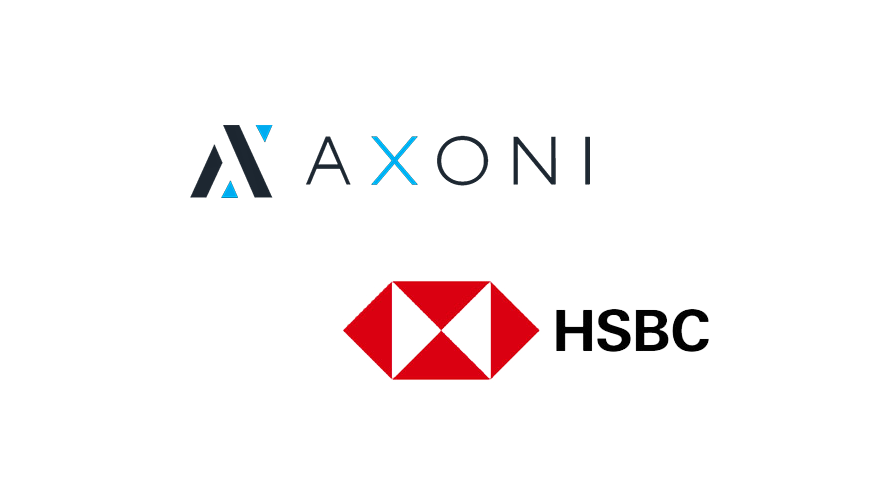Axoni, a New York-based capital markets technology firm that specializes in distributed ledger infrastructure and an eleven-firm working group announced they’ve complete the successful second phase of a peer-to-peer blockchain infrastructure for equity swaps processing. The eleven firms proclaimed the successful completion of a pilot to manage equity swap transactions and related post-trade lifecycle events. The implementation employs blockchain smart contracts and uses an optimized data structure in a distributed, peer-to-peer network to ensure perpetual reconciliation.
A continuation of an initial proof of concept, the pilot expanded the blockchain network to process equity swap lifecycle events, end-to-end. Having both sides of a swap transaction on the same ledger allows counterparties to simultaneously view and share data during the entire lifecycle of the swap – from proposal to termination. This synchronization of data increased transparency of calculation logic, and automation of corporate actions processing will reduce operational costs and errors and allow real-time data access for both client and regulatory reporting.
“Equity swap data is infamously complex and difficult to manage, making it a terrific fit for distributed ledger technology. We’re delighted to have reached another key milestone alongside our partners on this project and grateful for their collaborative efforts to demonstrate how powerful this tech can be,” said Greg Schvey, CEO of Axoni.
The pilot was managed by Axoni and executed on AxCore, Axoni’s distributed ledger software. The broad participant group included seven swap market participants from both the sell-side and buy-side including: BNP Paribas (EPA: BNP), Citi (NYSE:C), Credit Suisse (NYSE:CS), Canada Pension Plan Investment Board, Goldman Sachs (NYSE: GS), J.P. Morgan (NYSE:JPM) as well as industry service providers IHS Markit (NASDAQ: INFO) and Thomson Reuters (NYSE: TRI). ISDA provided equity derivatives documentation expertise and Capco provided consulting services.
Adam Herrmann, Global Head of Prime Finance at Citi, said, “Citi is pleased with the results of another successful equity swap pilot with Axoni. The contribution from investment managers to this effort signifies AxCore’s potential to add value end-to-end. Fewer valuation disputes, less reconciliation and real-time access to data would benefit all of the industry.”
“The equity swap pilot demonstrates the benefits of collaborating with innovative tech startups like Axoni and our industry peers to embrace new technology solutions that can contribute to commercial outcomes and operational efficiencies,” said Rana Yared, Managing Director, Goldman Sachs Principal Strategic Investments.”
Over the course of the multi-month pilot, the project tested automated lifecycle management and synchronization of single stock and portfolio total return swaps, as well as critical components regarding the deployment and management of the distributed ledger network.
The extensive testing conducted included a diverse set of over 70 structured test cases to assess lifecycle functionality and integration with external systems, including IHS Markit’s SwapOne platform. Connectivity to SwapOne was leveraged as an option to manage post-trade calculations, including accruals, resets, and payment schedules.
Key functionality tested included trade creation, position building, amendments, novation, termination, swap aging, stock splits and dividends, reporting, and private key management. A 100% success rate across all tests was achieved.
In addition, a diverse set of non-functional tests were also conducted to assess the robustness of Axoni’s blockchain infrastructure. These tests covered privacy, security, network health monitoring, node management, and network performance – with real-world throughput volumes successfully processed by the network.
Thomson Reuters pricing and reference data were also integrated with the Axoni solution to provide trusted market data, including equity prices, FX rates, benchmark rates, and corporate actions directly on the blockchain to enable the smart contracts’ automated workflows. “The seamless integration of market data is critical to the success of this and similar projects and we have been impressed with the solution that has resulted. We look forward to helping the project move to the next phase,” said Tim Baker, Global Head of Innovation at Thomson Reuters.
As part of the initiative, Axoni, assisted by ISDA, used participating firm’s confirmation templates to create a standardized equity swap confirmation and trade template based on a 2011 ISDA Equity Derivatives Definitions framework designed to facilitate electronic processing of equity derivatives. This standardized data structure was then implemented on the blockchain network and used in the pilot. “Use of common industry standards in new technologies is important to ensure maximum efficiencies for market participants. The 2011 Equity Derivatives Definitions were used in this case as the basis for standard templates to enable electronic processing of equity derivatives,” said Katherine Tew Darras, ISDA General Counsel.
The participants also collaborated on a governance framework that can be used to oversee and manage a production network. The governance framework was tailored to networks with distributed infrastructure in order to create an opportunity for increased agility, cost efficiencies, and transparency.
Capco assisted participant firms in building a business case for implementation of the platform by quantifying potential savings and efficiencies and consulted on governance considerations.





















